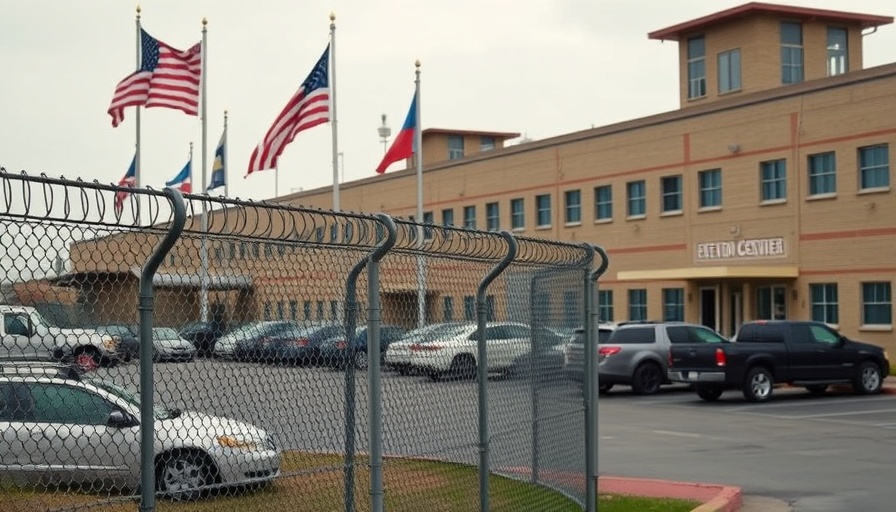
Understanding the New Deportation Efforts Under the Trump Administration
In a recent and alarming turn of events, the Trump administration has initiated a series of deportation proceedings that threaten to uproot vulnerable communities, particularly Venezuelan migrants. Notices being distributed at the Bluebonnet Detention Facility in Texas have stirred a significant response from legal groups and prompted a swift reaction from the Supreme Court. This situation raises urgent questions around due process and the legal frameworks currently in use for handling undocumented immigrants.
The Aliens Enemy Act and Its Modern Implications
Central to this deportation effort is the rarely invoked Alien Enemies Act, a law dating back to the 18th century. This legislation allows the government to identify individuals as “alien enemies” during wartime and carry out removals without the usual legal protections. The implications of applying such an outdated law to modern contexts are troubling. Critics argue that this action not only undermines the rights of those affected but also poses broader concerns regarding civil liberties in immigration enforcement.
Legal Challenges Multiplied: A Swift Reaction
The American Civil Liberties Union (ACLU) quickly mobilized in response to the notices, filing legal actions to prevent deportations from proceeding. The unprecedented speed of the Supreme Court's intervention shows the gravity of the situation. By halting flights for deportation and emphasizing the necessity of due process, the justices reaffirmed that even under wartime powers, migrants must have the opportunity to contest their removal in court.
Due Process and Its Importance in Immigration Law
The current legal battles spotlight the critical importance of due process for migrants. Following a recent Supreme Court ruling, it is now clear that migrants awaiting deportation must receive formal notice and the chance to appeal their status. This legal principle highlights the balance that must be struck between national security and individual rights, illustrating the ethical responsibilities that come with enforcing immigration laws.
Impact on Venezuelan Migrants and Broader Immigration Trends
The deportations specifically target a population already grappling with hardships stemming from the political and economic crises in Venezuela. These migrants often arrive seeking refuge and sustainable living conditions. The urgency of their situation and the potential for deportation forces many to navigate a precarious legal landscape, underscoring the systemic issues faced by immigrants in the United States today amidst evolving immigration policies.
The Bigger Picture: Immigration Policy in an Election Year
As we move closer to the upcoming elections, immigration remains a predominant issue, shaping platforms and policies for both major parties. The heightened tensions over deportations and the treatment of migrants will play into broader national conversations around immigration reform. Voter perspectives on these matters may influence policy decisions at the highest levels, with ramifications for future migrants and the legal systems in place to protect their rights.
Call to Action: Navigating the Landscape of Immigration Law
As citizens, staying informed about immigration policies and their impacts on communities is crucial. Advocacy, awareness, and engagement in legal processes can empower those who are affected by these developments. By understanding the issues at hand, individuals can play a meaningful role in shaping a more just immigration system. Whether through community support initiatives, legal aid volunteering, or simply educating others about these complex topics, every action contributes to the dialogue around immigration reform.
In summary, as the nation grapples with the implications of the Trump administration's new deportation efforts, it is essential to recognize the value of due process and the path forward for vulnerable communities. Observing how this story unfolds in courts and communities will resonate widely, influencing not just national headlines but also the lived experience of many within the U.S. borders.
 Add Element
Add Element  Add Row
Add Row 



 Add Row
Add Row  Add
Add 


Write A Comment